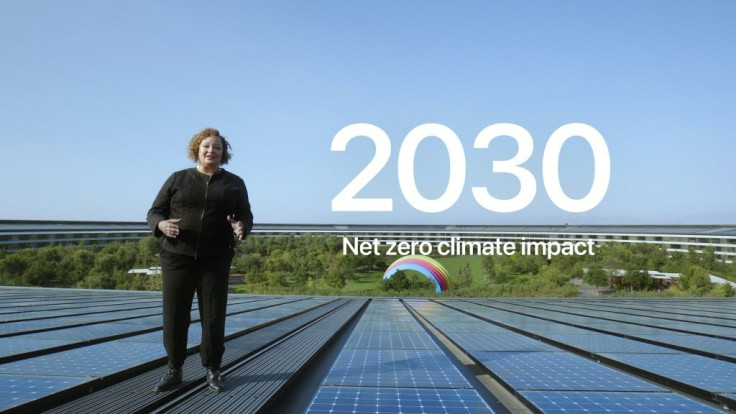Apple's Rare Earth Recycling Steps Up Environmental Response
Apple said Tuesday its newest iPhones would be produced using recycled rare earth materials, as part of a stepped up environmental initiative which also has geopolitical implications.
Announced as part of a series of sustainability actions, Apple said the move builds on prior initiatives including its pledge to become "100 percent carbon neutral" in all aspects of its business.
Apple's environment policy chief Lisa Jackson said during an online event announcing the new iPhone 12 handsets that "for the first time, we are using 100 percent recycled rare earth elements in all magnets including the camera, haptics and MagSafe (connectors)."
The announcement comes amid growing concerns about e-waste from billions of smartphones as consumers upgrade to new models, and with growing political tensions over rare earth materials needed for many electronics.
Activists have expressed concerns about the environmental impact of rare earth mining, and some of the materials come from countries cited for labor and human rights violations.
China, the scene of fatal mining accidents, has been in the spotlight for its dumping of toxic waste in Baotou, Inner Mongolia, as Beijing drives global production of rare earth elements.
Amid Sino-US trade tensions, China has threatened to cut off the supply of some elements, raising fears of shortages.
According to the US Geological Survey, China has the world's largest rare earth deposits, with 44 million tonnes of reserves. Vietnam and Brazil have 22 million tonnes each.

Difficulties with US deposits twice forced the closure of the only US mine, in Mountain Pass, California. And refining capacity is limited outside China, according to analysts.
Apple also said it won't be including earbuds or power adaptors with the newest iPhones, since most customers already have these. That will reduce manufacturing and make boxes lighter to ship.
Jackson said the move was part of Apple's efforts "to cut waste and use less materials."
Apple pledged in July to be carbon neutral across its entire business, including its manufacturing supply chain, by 2030, in a stepped up push to fight climate change.
The tech giant, which is already carbon neutral for its corporate operations, said the move would mean no climate impact for all its devices sold.
rl/dw
© Copyright AFP 2024. All rights reserved.



















